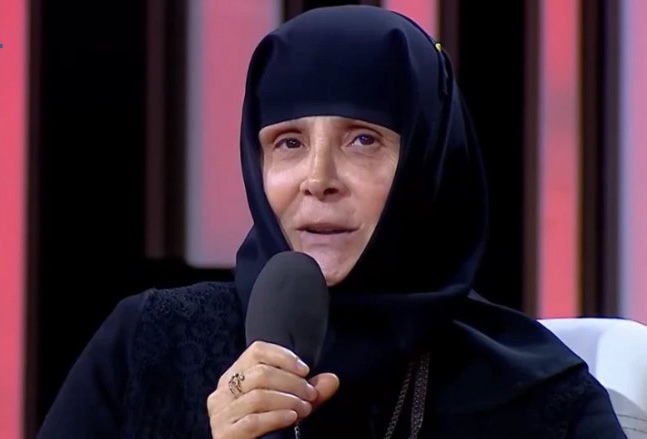One Curriculum, Many Cultures: Embedding Refugee and Migrant Health in Medical Education
By Professor Giorgi Pkhakadze
Chair, Public Health Institute of Georgia (PHIG); Professor at David Tvildiani Medical University (DTMU)
Introduction
In an era marked by escalating conflict, climate-related displacement, and socioeconomic instability, medical education must evolve to meet the needs of an increasingly diverse patient population. According to the International Organization for Migration (IOM), over 281 million people were international migrants in 2022, and the United Nations High Commissioner for Refugees (UNHCR) projects that by mid-2024, over 117 million individuals will be forcibly displaced due to war, persecution, and disasters.
Migrants and refugees face disproportionately high burdens of infectious diseases, untreated chronic conditions, mental health disorders, and maternal health complications. Many lack legal access to care, face linguistic and cultural barriers, or experience discrimination. Despite this, most health education systems globally do not prepare students to serve these populations.
The WHO Global Competency Standards for Health Workers emphasize the need to embed migration-sensitive competencies into health training. These standards define the skills and attitudes required for trauma-informed, rights-based care. Similarly, ASPHER has advocated for integrating migration health into public health education across Europe.
Medical and nursing schools are not just academic spaces—they are incubators of the next generation of health leaders. As one European dean remarked, “No student should graduate without knowing how to serve the displaced.”
This article explores how universities and training institutions can align their curricula with WHO’s Global Competency Standards. Drawing on global models, policy frameworks, and Georgia’s pioneering efforts through DTMU and PHIG, we propose a structured path for embedding migration health into medical education.
International Models and Policy Guidance
Institutions worldwide have started aligning with the WHO’s standards. In Sweden, Karolinska Institutet includes refugee health in its global health curriculum. The Netherlands integrates migrant care into its CME platform, and Germany’s Charité Berlin includes it in public health training. These models emphasize case-based learning and active inclusion of migrants in education design.
At the regional level, ASPHER and WHO Europe co-developed model syllabi and hosted faculty workshops to mainstream migration health. In Lebanon and Jordan—where refugees comprise over 25% of the population—WHO and UNHCR partnered with universities to implement pilot curricula aligned with the Global Competency Standards.
The standards align with global frameworks like the
Universal Health Coverage (UHC), the Sustainable Development Goals (SDGs)—especially SDG 3 (health), SDG 4 (education), SDG 10 (reduced inequalities), and SDG 16 (strong institutions)—and the Global Compact for Safe, Orderly and Regular Migration.
These examples show that embedding refugee and migrant health into education is not only feasible—it is already happening. The next step is scaling up, linking it to national accreditation and licensing systems, and fostering government–university–civil society partnerships.
Georgia’s Leadership and Academic Vision
In Georgia, David Tvildiani Medical University (DTMU) and the Public Health Institute of Georgia (PHIG) were the first to pilot the WHO Global Competency Standards (GCS) in a university setting. In 2024, DTMU integrated the GCS into its undergraduate medical education. Over 200 students participated in dedicated modules on communication, ethics, and migrant-centered care. Post-course evaluations showed a 47% increase in confidence and 33% higher scores in knowledge assessments.
DTMU also launched faculty development workshops in partnership with PHIG and local NGOs. Based on the success of this model, DTMU and PHIG are now proposing a National Academic Framework that will:
- Establish GCS-aligned competencies across all accredited programs.
- Translate and adapt the WHO standards to the Georgian context.
- Introduce a national training-of-trainers (ToT) program for faculty.
- Link GCS training to medical licensing and re-certification.
This vision aligns with Georgia’s goals under the WHO European Programme of Work and EU health integration pathways. It offers a replicable model for small and mid-sized countries aiming to reform medical education through migration-sensitive equity standards.
Recommendations for Academic Institutions
- Mandate GCS-Based Content: Make migration health a required part of all medical, nursing, and public health programs.
- Train Faculty: Invest in faculty development, incentives, and exchange programs to boost institutional capacity.
- Integrate Real-World Experience: Partner with NGOs and clinics serving refugees for hands-on student learning.
- Include Refugee Voices: Collaborate with migrant communities to co-design course content and assessments.
- License-Linked Competency: Include GCS-based training in medical licensing and CME re-certification frameworks.
- Join Academic Networks: Link with ASPHER, TropEd, and the IOM networks to share knowledge.
- Use SDG Language: Align proposals with SDG 3, SDG 4, SDG 10, and SDG 16 to attract support and funding.
Conclusion
The 21st century will be defined by human movement. Medical and nursing schools must rise to the challenge of preparing health workers who can provide equitable, dignified care to refugees and migrants. From Karolinska Institutet to DTMU, forward-thinking institutions are embedding the WHO Global Competency Standards into education and policy.
Georgia’s leadership, through DTMU and PHIG, demonstrates how academic transformation can drive national reform. Their model is a blueprint for countries across the WHO European Region and beyond.
Now is the time to act. If we believe in health for all, then education for all must include training for all. The future of healthcare belongs to those who are prepared to serve humanity in all its complexity.
“No student should graduate without knowing how to serve the displaced.”
📌 About the Author
Professor Giorgi Pkhakadze, MD, MPH, PhD
Professor and Head of Department at David Tvildiani Medical University (DTMU), Chair of the Public Health Institute of Georgia (PHIG), and Official Representative of Accreditation Canada in Georgia. He is a WHO consultant on health and migration, a former Member of the UN Secretary-General’s Independent Accountability Panel, and a current Technical Advisor to Gavi and former expert for the Global Fund to Fight AIDS, Tuberculosis and Malaria (GFTAM).
📬 Contact: [email protected]
📱 #drpkhakadze #გიორგიფხაკაძე #MigrationHealth #MedicalEducation #HealthForAll #GlobalStandards

 7 months ago
82
7 months ago
82











 English (US) ·
English (US) ·  Georgian (GE) ·
Georgian (GE) ·